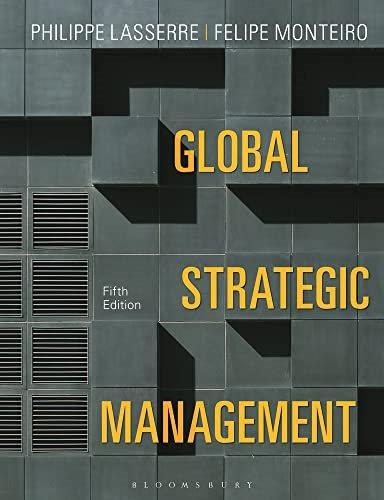In June 2011, Royal Dutch Shell (usually known as Shell) and Cosan announced the start of operations
Question:
In June 2011, Royal Dutch Shell (usually known as Shell) and Cosan announced the start of operations at Raízen, a 50/50 joint venture to produce ethanol, sugar and electricity from sugar cane, as well as to distribute and market fuel. The Raízen operation started with 40,000 employees, and is among the five largest companies by revenue in Brazil, with a market value estimated at $12 billion, and producing and selling over 2 billion litres of ethanol a year.
Shell indicates that turning sugar cane into ethanol offers a number of environmental benefits over other biofuel production processes. As it grows, sugar cane generally absorbs CO2 at a greater rate than other biofuel crops such as soy.
In a press release, Shell stated: ‘Ethanol made from Brazilian sugar cane produces around 70%
less CO2 than petrol and by-products from turning sugar cane into ethanol are recycled as organic fertiliser. Plant waste, called bagasse, is burned to produce power for the processing mills and surplus energy is supplied to the national grid.’
But critics of ethanol are also pinpointing its harmful effects on the environment and society.
According to the Transnational Institute:
sugarcane is grown as a monocrop, predominantly in southern and central Brazil as well as in parts of Asia and Africa. It relies on heavy quantities of inputs, particularly fertilizer.
Harvesting is often done by hand, and working conditions are notoriously harsh. A number of studies in Brazil have shown that demand for land for sugarcane is leading to the conversion of grasslands and wooded savannah for crops, releasing stored carbon dioxide, and displacing previous users like cattle farmers who move into tropical forests. Sugarcane also has devastating effects on biodiversity –
with the Cerrado savannah of Central Brazil, where sugarcane is grown, being one of the world’s most biodiverse and also most threatened habitats. Sugarcane expansion is also affecting Brazil’s Atlantic Forest, and indirectly the Amazon, as cattle farmers move into the forest in the search for new pasture.
Sugarcane expansion may lead to land conflicts, as rural communities are forced off land to make way for the plantations. Smallscale farming has become unviable in the plantation areas and many small farmers feel they have no financial choice but to sell up.
Sugar plantations are displacing small farms, food crops and subsistence food systems –
leading to food shortages and price rises.31 Questions:
1 Imagine you are a socially responsible Shell shareholder. What is your view on the issue?
2 Shell has been criticized over environmental concerns and human rights in Africa, Europe and the USA. What can an energy company do to answer such criticisms?
Step by Step Answer:

Global Strategic Management
ISBN: 9781350932968
5th Edition
Authors: Philippe Lasserre, Felipe Monteiro





